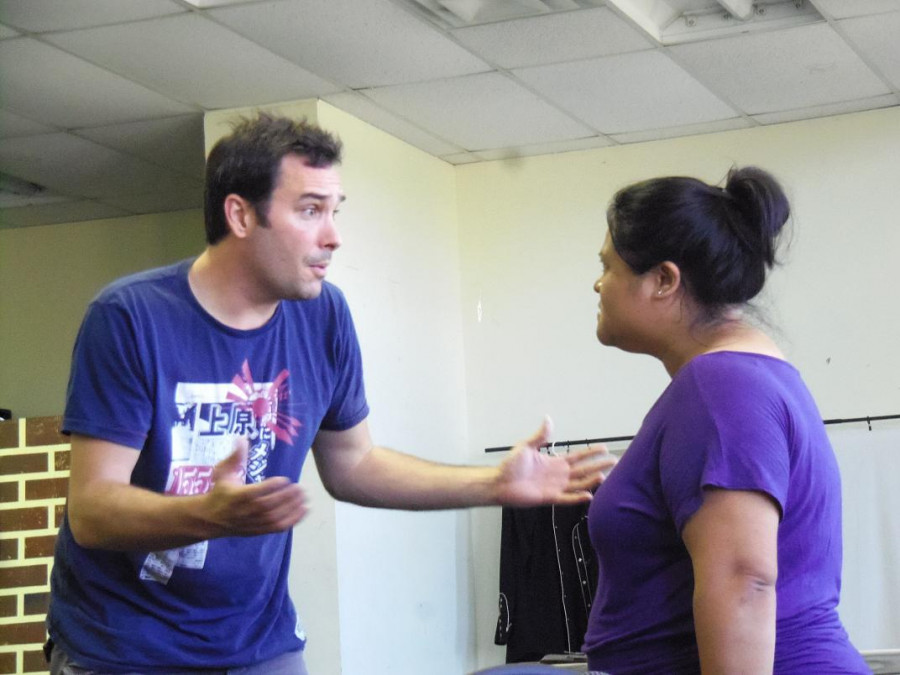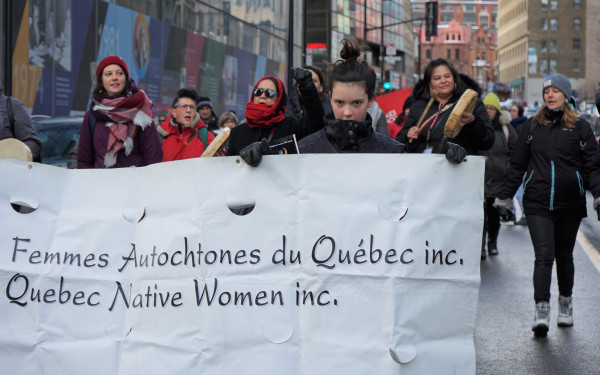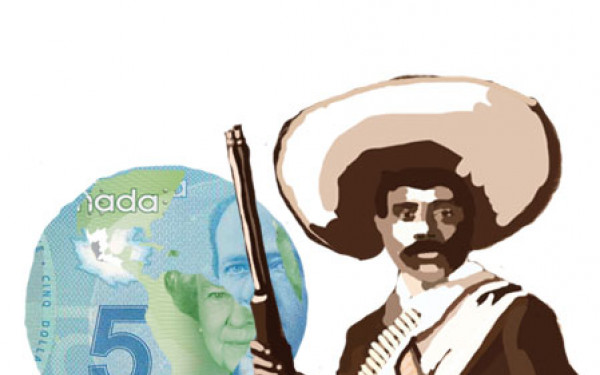Unresolved Trauma
“Where the Blood Mixes” Tells the Story of Native Communities
Residential schools, where Catholic priests and nuns educated First Nations youth about Christianity and European culture, left scars of abuse behind on the communities whose children they sought to fix. That reality is honored in the play Where the Blood Mixes, starting next week at the Centre Culturel Calixa-Lavallée.
“He’s dealing with the aftermath of being told to be ashamed of being First Nation,” said actor Jeremy Proulx of his character. “These schools would brainwash the children to believe that their heritage and culture was something to be ashamed of.”
Proulx comes from Neyaashiinigmiing, ON and is of Ojibwe and Oneida descent. Preparing to play Floyd, a reserved middle-aged man who represses his past, he spoke to his own relatives about their experiences in residential schools, and examined how different generations coped with their abuse.
“Generation after generation is dealing with unresolved trauma. Parents pass it on to their kids and they pass it on to theirs. The abuse and shame repeats itself. It’s a vicious cycle,” Proulx said.
The theatre group Teesri Duniya, meaning “third world” in Hindustani, heavily promotes multiculturalism among its artists, one of the few theatre companies of its kind in Canada. Their productions focus solely on minority issues, commonly those of the First Nations, and they seek to promote awareness of these issues.
The title Where the Blood Mixes refers to the image of two British Columbia rivers, the Thompson and the Fraser, colliding. The waters are dark and thick, yet they blend together, like past and present.
“The play is also about coming home. Returning to your roots. The abuse may be in the past, but there are still repercussions today. People are searching to move on and lead healthy and productive lives, to not be trapped by their legacy,” Proulx said.
Actor Charles Bender is a prominent figure on Aboriginal People’s Television Network and in First Nations theatre in Quebec. The knowledge gained through his work helped him to portray the role of his character, Mooch.
“I’ve traveled to pretty much all the reservations in Quebec on theatre tours, I know these communities very well. I’ve met a lot of people who have attended residential schools,” said Bender.
“We are carrying the weight of very real, very concrete stories. You are pushing the stories of people that didn’t get to tell theirs, or aren’t ready to talk about it. It’s a responsibility to our ancestors.”
Proulx has worked with First Nations theatre groups in the Toronto area, while Bender has worked mainly in Quebec and the Maritimes, but they each have developed an understanding of the very specific way Native culture is portrayed in Quebec.
“I have noticed that in Quebec, native culture is not valued the same as in the rest of Canada. There is still a lot of work to be done for the mainstream cultural elite of Quebec to understand First Nation art forms,” Bender said.
“You get a sense in Quebec that the cultural environment still considers First Nations to be people that can only do folkloric stuff.”
Where the Blood Mixes / Centre Culturel Calixa-Lavallée (3819 Calixa-Lavallée Ave.) Sept. 13 to Sept. 30 / $12.00 for students, $20.00 for adults





_600_375_90_s_c1.jpg)

